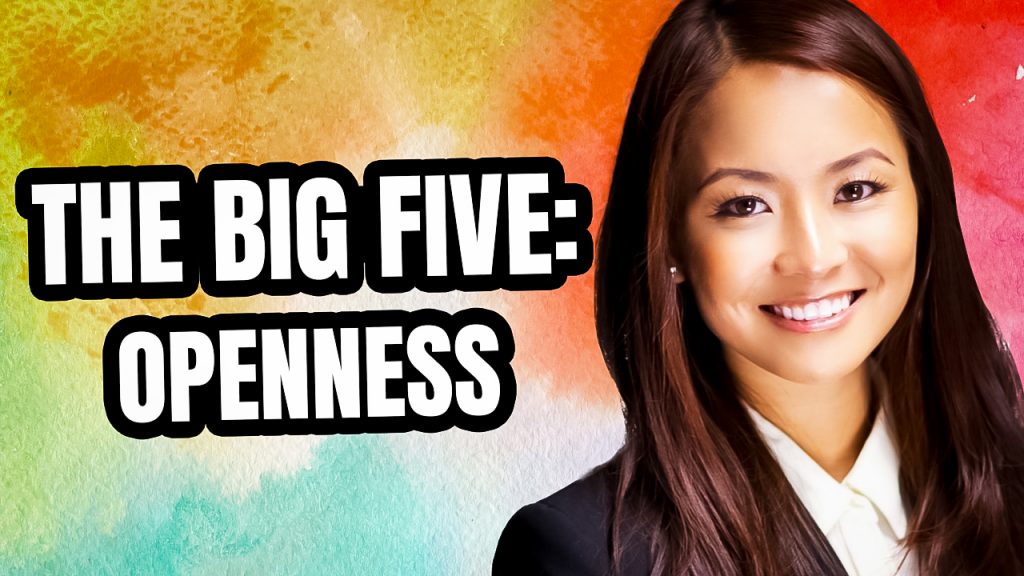The Big 5: Openness

The Big Five personality traits, also known as the Five Factor Model (FFM), is a widely accepted
framework for understanding personality. It consists of five broad dimensions of personality that
can be used to describe and explain individual differences. The five dimensions are openness,
conscientiousness, extraversion, agreeableness, and neuroticism. In this essay, we will focus on
the first dimension, openness.
Openness is often described as a willingness to experience new things and ideas. People who
score high on this dimension tend to be creative, curious, and imaginative. They are often
interested in art, music, literature, and other forms of cultural expression. They are also likely to
be interested in exploring new places and trying new foods.
On the other hand, people who score low on openness tend to be more conventional and
traditional. They may be less interested in exploring new ideas and experiences and may prefer
familiar routines and activities. They may also be less open to new people and cultures.
One of the key aspects of openness is a person’s level of intellectual curiosity. People who
score high on this dimension tend to enjoy learning new things and are often eager to explore
different ideas and concepts. They may be more likely to engage in intellectual pursuits such as
reading, writing, and debating.
Openness is also closely linked to creativity. People who score high on this dimension tend to
be more creative and imaginative. They may enjoy expressing themselves through art, music,
writing, or other forms of creative expression. They may also be more likely to come up with new
and innovative ideas.
One of the challenges of openness is that it can also be associated with risk-taking behavior.
People who score high on this dimension may be more likely to engage in risky behaviors such
as drug use or extreme sports. They may also be more likely to engage in impulsive behavior.
In addition to its links to creativity and risk-taking behavior, openness is also associated with a
range of positive outcomes. For example, people who score high on this dimension tend to be
more tolerant of other people and cultures. They may also be more empathetic and
compassionate.
Openness is also linked to better mental health outcomes. People who score high on this
dimension are less likely to experience symptoms of depression and anxiety. They may also be
more resilient in the face of stress and adversity.
One of the most interesting aspects of openness is that it appears to be somewhat malleable.
While some aspects of personality are thought to be relatively stable over time, openness may
be more responsive to environmental factors. For example, people who are exposed to diverse
cultures and ideas may become more open over time.
Research has also suggested that certain life experiences can influence a person’s level of
openness. For example, people who have traveled extensively or lived abroad may be more
open to new experiences and cultures. Similarly, people who have had positive experiences with
different cultures and ways of thinking may be more open to diversity and change.
In conclusion, openness is a key dimension of personality that describes a person’s willingness
to experience new things and ideas. People who score high on this dimension tend to be
creative, curious, and imaginative. They may also be more likely to engage in risky behaviors
and may need to be mindful of this tendency. However, openness is also associated with a
range of positive outcomes including better mental health and increased empathy and
tolerance. As such, cultivating openness may be an important goal for individuals and society as
a whole.
This Post is Brought To You By BetterHelp